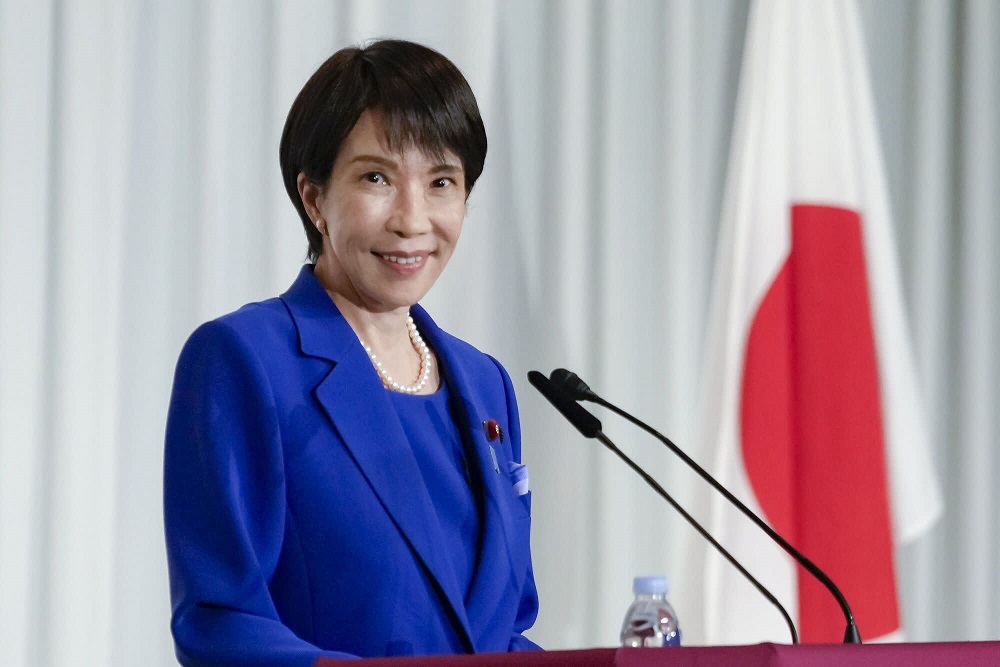Will the yen extend slide if Takaichi becomes the new PM?
The yen has slumped in the last week as incoming LDP leader, and likely new PM, Takaichi revived memories of former PM Abe’s stimulus-laden period in office that saw the yen slump.

Yen Weakens After Takaichi’s Leadership Win
Takaichi might be able to shake off this tag, and the BoJ could come to the rescue with intervention and/or rate hikes, but the yen’s malaise seems to run much deeper.
It seems unfair to tar Takaichi with the same brush as former PM Abe. For he came to power in a general election, while Takaichi has only won an internal LDP election to replace former PM Ishiba and must govern from a minority position in both the Lower and Upper Houses. Worse still, the decades-old coalition with the Komeito Party looks to have come to an end, and that might jeopardise Takaichi’s chances of becoming the new PM.
Even if she can overcome these hurdles, the LDP is in no position to undertake the sort of so-called three-arrow approach that Abe took to boosting the economy when he came to power in 2012. This triple arrow included fiscal and monetary policy stimulus as well as structural reforms. The monetary easing part was done by incoming BoJ head Kuroda through quantitative and qualitative easing which contributed to a steep fall in the yen.
Fast forward to today, and the economy has arguably reaped the benefits of Abe’s approach, and hence the need for fiscal, monetary, and structural stimulus is lacking. Indeed, the BoJ is on a committed tightening path. So, for all sorts of reasons, it seems unfair to think that Takaichi will be a carbon copy of Abe—and that the yen will fall in the same way. But that does not mean that the yen is safe. On the contrary, it remains vulnerable, albeit for different reasons than those we saw during Abe’s premiership.
As mentioned, one reason is that Abe’s relatively strong and long-lived premiership stands in contrast to the vulnerable political situation that Takaichi finds herself in. Another point to make is that yen weakness did not start with Abe. The yen has been falling in real effective terms for around 30 years, not long after the bubbles in housing and equities burst.
In short, it seems that there’s been something more structural that has troubled the yen all this time, and not just Abe’s three-arrow policy. This might seem odd given that Japan boasts a strong current account and net international investment position. But surging government debt and the increasing proportion of that debt owned by the BoJ (of over 50% now) seems to have created the conditions for currency debasement that the market is now grappling with when it comes to the dollar. That might seem an odd thing to say given that debasement should mean inflation, but policymakers have struggled to lift inflation, not lower it.
Instead, it seems that the debasement has happened externally via the weak yen, not internally via inflation. One source of angst comes through the interaction between the government and the BoJ. If we go back to Abe’s election win in 2012, the PM needed a BoJ leader that could deliver significant monetary easing. Kuroda was the man chosen for the job—and he duly delivered. This seemed a clear case of political influence of the sort that might make President Trump proud. Even now there’s talk that the BoJ will be more reticent to lift rates given that Takaichi may have a bias for easier fiscal and monetary policy.
Steven Barrow, Head of Standard Bank G10 Strategy, said another headwind that the yen has faced for some time is its role as a funding currency for the carry trade. Japanese rates might have increased in recent years, but they are still low relative to peers, and FX volatility is very low. Add to this the renewed global demand for higher-yielding emerging market risk, and it looks as if the yen could be bogged down for some time.
“If the yen is to stage a meaningful and long-lived rally, it arguably has to overcome these structural impediments to strength that we have just listed. But this will be hard to do. Without such changes the authorities will probably have to fall back on FX intervention again, as they have had to do in recent years. That still won’t turn the tide, and, in the end, it rather looks as if the yen bulls will have to hope that the dollar implodes, as that seems the most likely source of significant and sustained yen strength”, said Steven Barrow.








